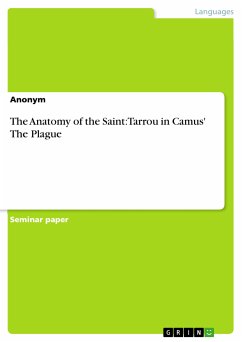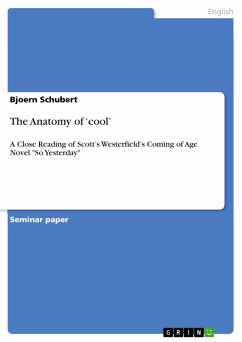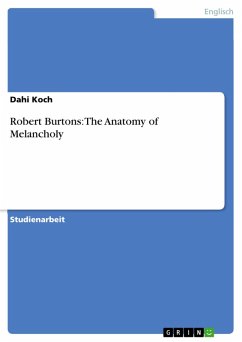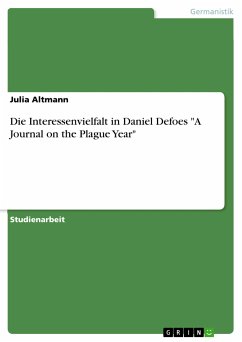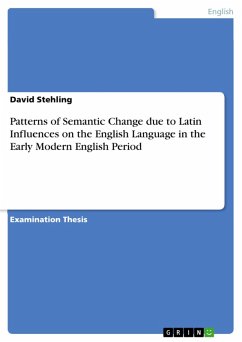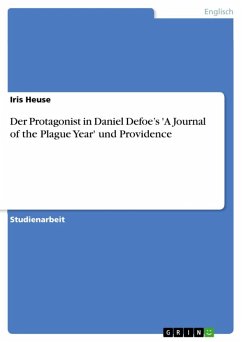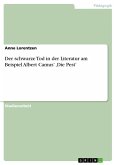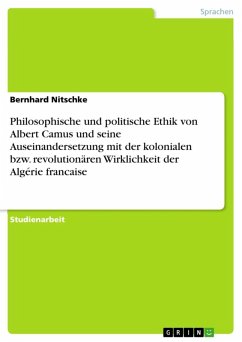Seminar paper from the year 2002 in the subject French Studies - Literature, grade: 2,0, Brandeis University, language: English, abstract: Albert Camus understood the novel as philosophy translated into images. His characters embody ethical theorems and enact the respective patterns of behaviour. This applies also to Tarrou, besides Rieux and Rambert one of the main characters in Camus' novel The Plague,which was begun and secretly spread as an underground testimony during the author's time at the résistance newspaper Combat,to be published in its complete form in 1947. Four main discourses intersect in Tarrou. His persona is constituted by the discourses of Truth, History, Life and Death. The following is an examination of them and the relations between them. (The relations are signalled to some extent by 'links' in capital letters). Since Camus shaped Tarrou in part after himself - Tarrou's biography resembles Camus' unfinished autobiographyThe First Man- this may also shed some light on the intellectual and emotional forces at work in Camus when he was writing down The Plague. No character in The Plaguehas a stronger and more explicit relationship to truth than Tarrou. He distrusts the consoling quality of lies. Even when he faces the possibility to be infected with plague and is thus confronted with his own DEATH, he repeatedly insists that Rieux tells him the truth about his condition. (cf. 284, 287) But this is the only occasion when Tarrou is in need of learning the truth. He says about himself that he has "little left to learn." (129) When asked whether he really thinks he knows everything about life, he answers in the affirmative. (cf. 130) Tarrou's relationship to truth is essentially a Freudian one. Taking a stance very close to that of Freud's Thoughts for the Times on War and Death,he lives life in acceptance of the true yet unappealing nature of man. Freud argues that we are, by nature, murderously inclined toward others, and that civilization can suppress this primitive instinct but can never root it out completely. This is what Tarrou means when he says: "We can't stir a finger in this world without the risk of bringing death to somebody." (252) The instinct to kill may break through in all our actions, even in those that seem insignificant to us. The condemnation of man to his own nature is total; there are no exceptions. Tarrou declares that he himself is like everybody else in not being able to escape from human nature, "each of us has the plague within him; no one, no one on earth is free from it." (253) [...]
Dieser Download kann aus rechtlichen Gründen nur mit Rechnungsadresse in A, B, BG, CY, CZ, D, DK, EW, E, FIN, F, GR, HR, H, IRL, I, LT, L, LR, M, NL, PL, P, R, S, SLO, SK ausgeliefert werden.

